Abstract
Former Chief Judge of Supreme People’s Court and legal scholar reviewed Guiding Case No.76 from Administrative Law and Contracts perspective.
On June 19th, STL hosted a seminar to review Guiding Case No.76 (“No.76”) issued by the Supreme People’s Court. This case review seminar is part of a new initative proposed by Judge CAI Xiaoxue and Prof. HUANG Hui. This initiative – titledThorns Beauty– aims to inspire future rule of law through reviewing cases with Judges and legal scholars.
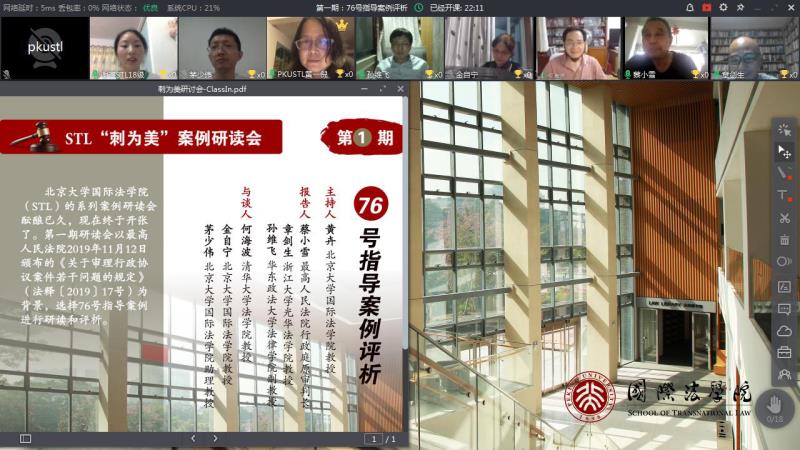
The first episode was moderated by Prof. HUANG Hui from STL. Invited speakers include the former Chief Judge of the Supreme People’s Court CAI Xiaoxue, professor ZHANG Jiansheng from Zhejiang University, and professor SUN Weifei from East China University of Political Science and Law.Joint commentatorsare professor HE Haibo form Tsinghua University, professor JIN Zining, and professor MAO Shaowei from STL.
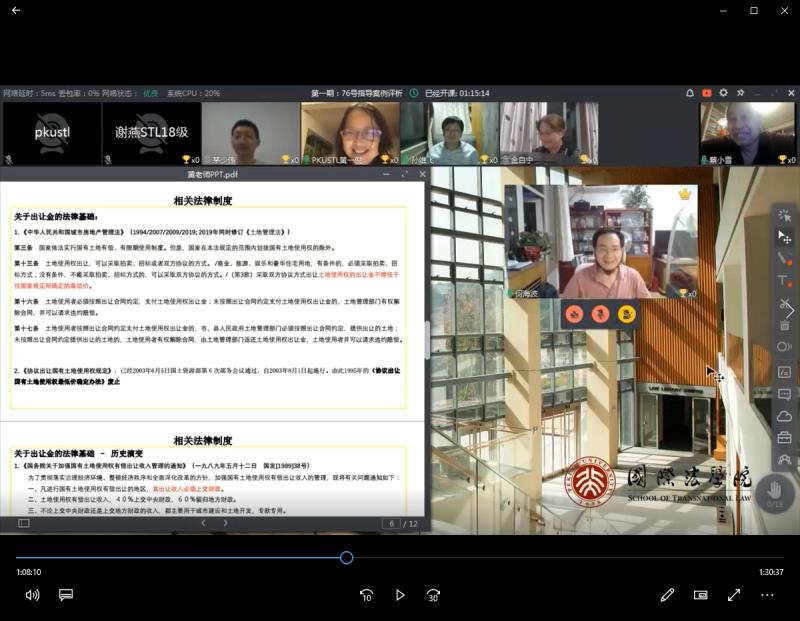
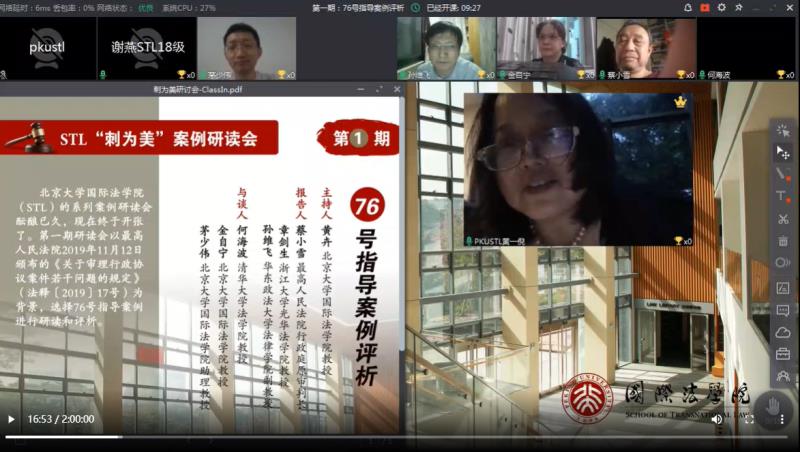
Guiding case No. 76,Pingxiang Yapeng Real Estate Development Co., Ltd. v. Land and Resources Bureau of Pingxiang City,was chosen to be reviewed. It is a case about failure to perform an administrative agreement. The dispute in this case is around the interpretation of a sentence from their agreement: “therefrigerated warehouseremained unchanged.” More specifically, what remained unchanged? The land occupied by the refrigerated warehouse continues to function as is, or the land-use zoning continues to be industrial zoning instead of commercial?
Later in this case, the Planning Bureau of the city, which regulated the land-use zoning, clarified that the zoning of the land is commercial. Different land-use zoning are priced differently at sale. The defendant then asked the plaintiff to compensate the price gap between industrial zoning and commercial zoning, regardless of their agreement.
The holding in this case goes against the defendant. The ruling says, “once [the administrative agreement] concluded, the parties to an administrative agreement must strictly observe it. Without justifiable reasons, the administrative authority may not attach additional obligations beyond those in the agreement to the other party or unilaterally change or terminate the agreement.”
Professor Zhang started reviewing this administrative law case. The interpretation of the context in an administrative agreement should consider three questions: (1) who has the power to decisively interpret the administrative agreement, (2) whether the Planning Bureau’s zoning can bind the intention in this specific agreement, and (3) what is the limit on the Court deciding such a technical question.
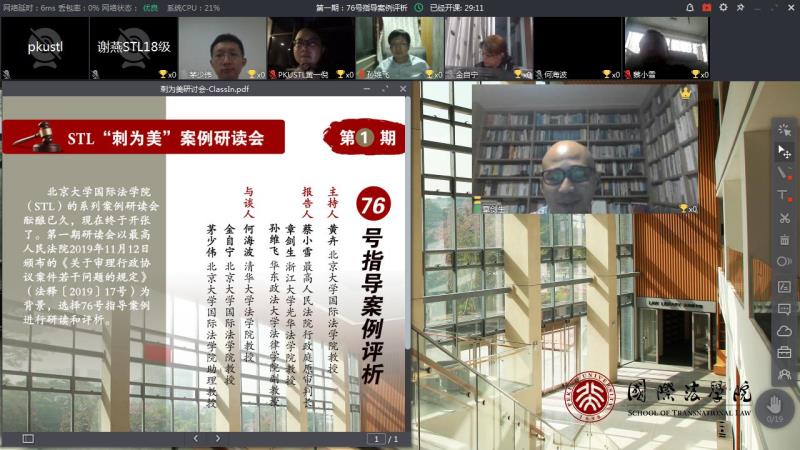
Professor Sun raised a new solution from a contracts law perspective. He analyzed this case from three stages of contracts – establishment, effect, and performance. He explained that (1) the administrative agreement should explore the real intention of both parties to see if the contract was ever established, (2) whether this agreement is defective for mistake or illegality, so it could be void, and (3) even in the performance stage, the performance could still be void if it is illegal.
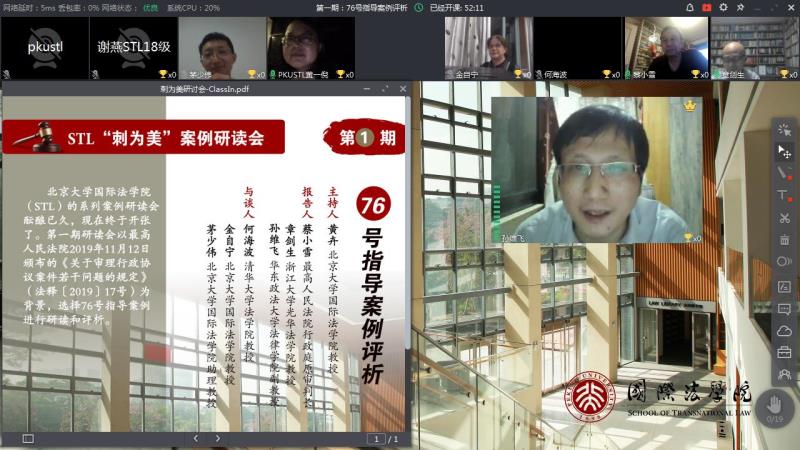
Former Judge Cai commented on this case from an administrative law perspective. He thinks the main issues in this case are twofold: (1) the case’s fact finding is still unclear and (2) administrative law should always inspect the statutory limit of its power.

After the comments on the case, joint commentators also gave their opinion. Professor He talked about the significance of the case’s procedural history. Professor Jin felt inspired by how public and private law can overlap and complement each other. Professor Mao concurred with Professor Sun’s opinion on how the method of contract interpretation can be adopted to interpret the administrative agreement.
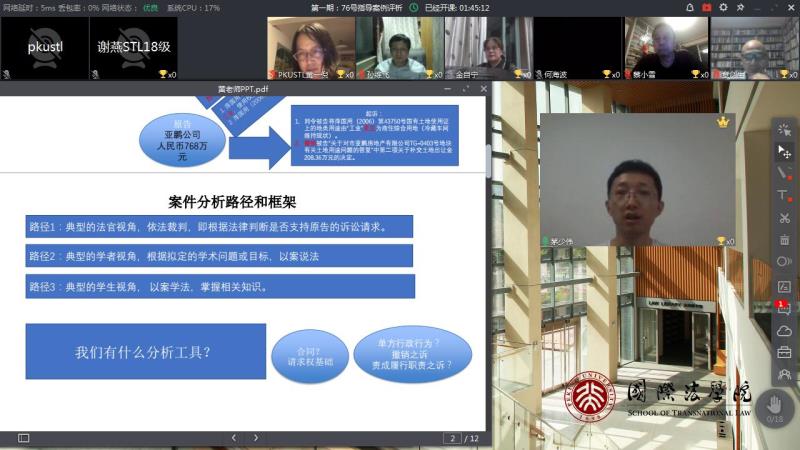
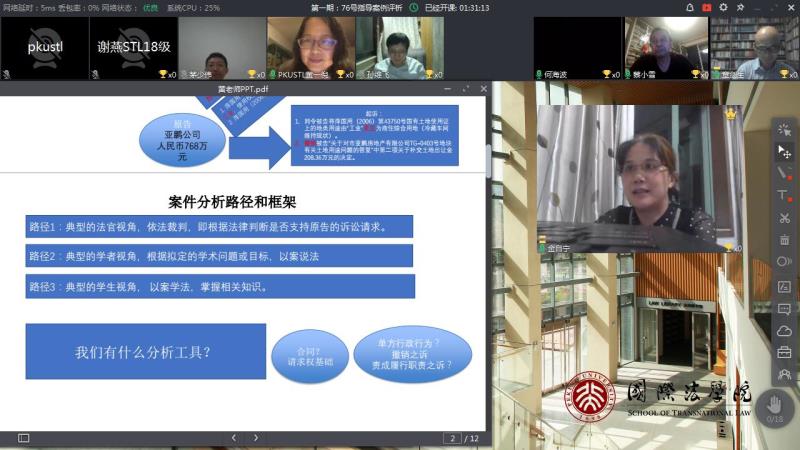
The review seminar lasted for 3 hours and got over 5,000 views. TheThorns Beautyinitiative was developed to be a regular seminar in the future with the aim of attracting more legal scholars to comment on the cases reviewed.